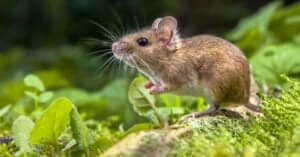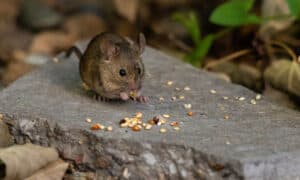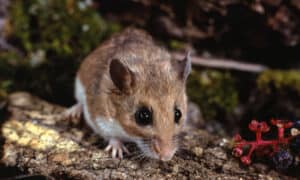Guinea pigs are adorable rodents with small furry bodies. They are popular among people of different regions for various purposes. Some are kept for consumption, while some keep them as pets. One distinct feature of this species of rodent is its poop.
Guinea pig poop tells the rodent owner a lot about the condition of the animal. There are also other unique features of the guinea pig poop that are noteworthy. This article discusses everything you’ve ever wanted to know about guinea pig poop.
What Does the Guinea Pig Poop Look Like?
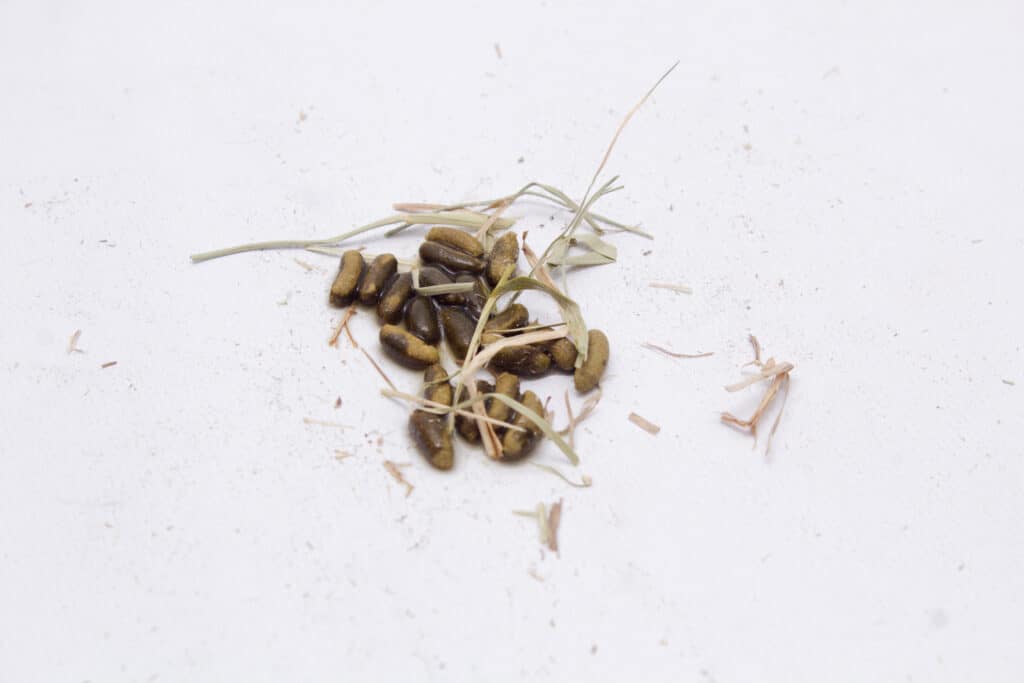
The guinea pig’s poop doesn’t smell.
©MidgardCreations/Shutterstock.com
Generally, for most mammals, poop is often a smelly waste discharged out of the body. The guinea pig poop is one rare exception. This is perhaps the most striking detail about this species of animal poop. Besides the fact that the guinea pig poop doesn’t smell, they also have a distinct feature.
A typical guinea pig poop is oval, with the color ranging from dark brown to black. The color might vary depending on age and type of feed. The poop can also be medium brown under certain conditions, and it maintains its oval shape even after discharge. The poop is moist but solid enough to maintain such shape even if the animal steps on it.
How Frequently Do Guinea Pigs Poop?
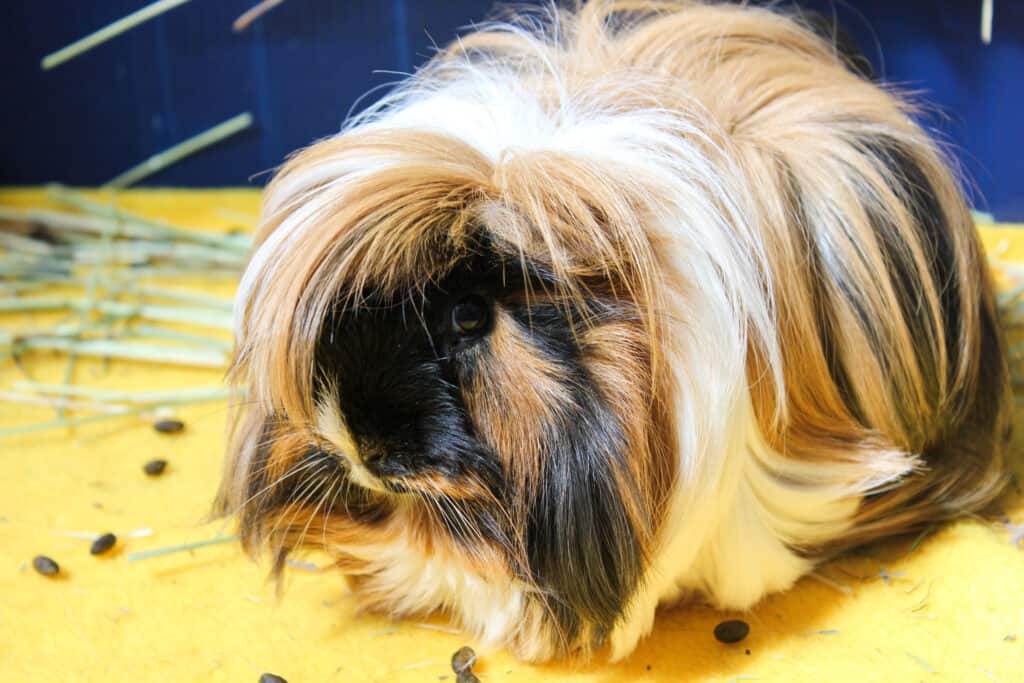
An average guinea pig can poop up to 100 times in a day.
©Nicole Glass Photography/Shutterstock.com
Another interesting point to note about guinea pig poop is their release frequency. An average guinea pig can poop up to 100 times in a day. Yes, you read that right. This number ranges between 50 to 70 times daily for older rodents with less energy.
For another typical mammal or rodent, this high number can signify ailment or infection. However, for guinea pigs, it is just a typical day of life. And since healthy guinea pigs’ poop doesn’t smell, a large amount of it does not stink up the environment.
Like many other rodents, guinea pigs do not have a specific time or place for pooping. They discharge poop anytime and everywhere. It might be scattered all around, depending on the size of the guinea pig’s cage.
Is Guinea Pig Poop Harmful?
Interestingly, a healthy guinea pig poop does not have a foul smell or stink. However, that is not the only point to consider when discussing the effects of poop. In terms of health risks to humans, it does pose some threats.
Guinea pigs’ poop often contains bacteria that are harmful to humans. One typical example is salmonella which often leads to fever in humans. If you own a guinea pig as a pet, when cleaning the poop, it is best to avoid direct contact. Thorough washing is also advised after cleaning the animal’s bedding.
How Does the Guinea Pig Poop Indicate Sickness?
One crucial fact to note when keeping guinea pigs is that they are very good at hiding sickness. They also do not display common symptoms of illness such as vomiting or inactiveness. The primary way of detecting infection in these cute rodents is through poop examination.
The poop can tell you all you need to know about the animals’ health condition. Two significant reasons lead to changes in the shape and smell of the poop. The first is the type of feed given to them. The second is the presence of underlying sickness or stress.
When guinea pig poop changes from the typical form to another, they often take on some standard shape and look. These shapes can help to detect the specific type of symptoms that the guinea pig is displaying.
Here are some common types of guinea pig poop that indicate sickness:
- Tear Shaped Poop
The typical shape of the poop is oval. A tear-shaped guinea pig poop indicates a gut problem. Gut problems are often a result of reduced feeding. Low-quality hays or problems with the rodent’s dental health can lead to a reduction in hay consumption.
The best option is to change the type of hay served to the animal. Another option is to serve the hay in a rack. This ensures that the animal does not infect the hay with urine and poop.
- Dry Poop
Typical and healthy guinea pigs’ poop gets dry after some time of dropping. However, if the poop is dry immediately after excretion, then the animal has a problem with dehydration. Dehydration can be a result of the unavailability of drinkable water. It can also result from high temperatures.
The provision of sufficient water in bowls and bottles will provide enough water for the animal’s consumption.
- Soft and Mushy Poop
Soft and mushy poop often indicates severe health issues in a guinea pig. Most times, this is an indication that the animal has diarrhea. This type of poop is also smelly and stinks up the place. Diarrhea will cause other issues such as dehydration and loss of appetite. This can often lead to more severe complications in the animal.
Hydration is the first step to bringing the animal back to normal health. Sometimes, it is also necessary to change the diet of such rodents. The addition of fresh vegetables can also help restore its health.
- Poop With Blood
This indicates the most severe type of condition facing the animal. It could result from a tear in the intestine or other parts of the animal’s digestive tract. Visiting a veterinary doctor is the only proactive step at this point.
What Do Guinea Pigs Eat?
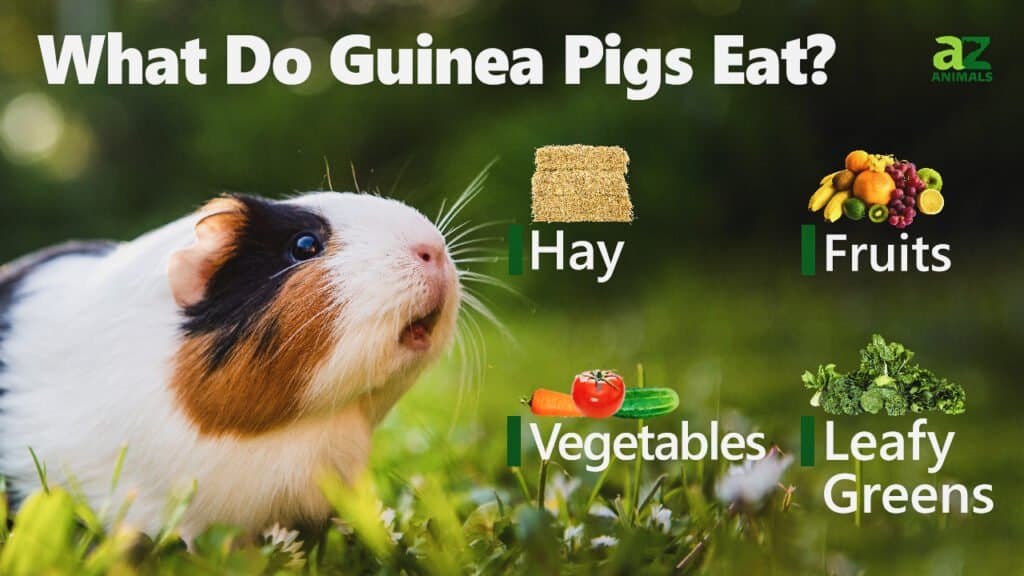
A guinea pig’s diet is a simple one. This rodent is a herbivore that consumes hay, fruits, and vegetables. Their teeth are developed for their diet. A constant supply of hay with good fiber quality is what you need to raise a guinea pig. The animal also drinks water that can be up to 10% of its weight in a day.
Another interesting fact is that guinea pigs are coprophagic. This means they eat their poop as part of the normal digestive process. However, this poop is different from typical poop. It is green showing that it still contains nutrients for animal consumption. So if a guinea pig is seen picking up its poop, it should not surprise anybody. Guinea pigs eat their poop!
The photo featured at the top of this post is © Rita_Kochmarjova/Shutterstock.com
Thank you for reading! Have some feedback for us? Contact the AZ Animals editorial team.



